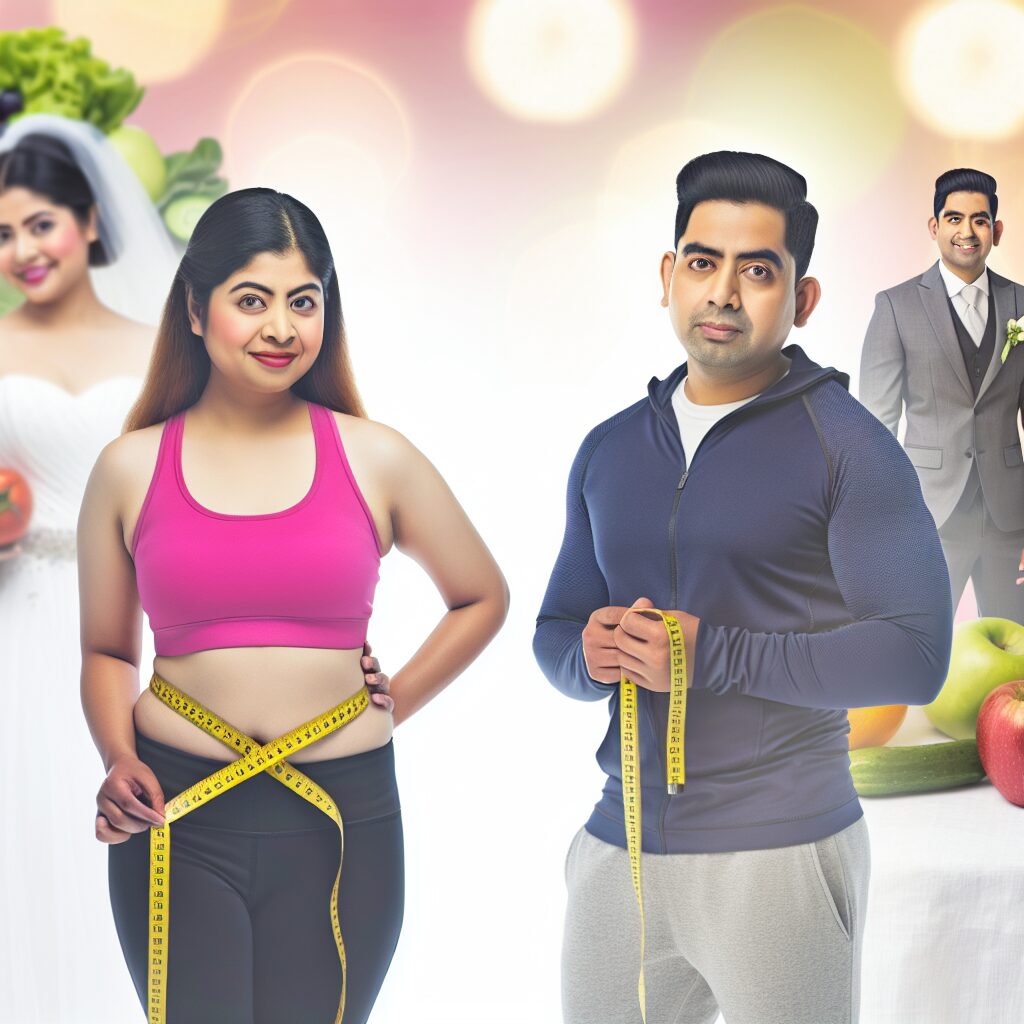Wedding Weight Loss Diet: A Comprehensive Guide to Look Your Best
When it comes to the perfect wedding day, every bride and groom want to look and feel their absolute best. This often involves shedding a few pounds. However, it’s essential to ensure that weight loss for your wedding is done healthily and sustainably. In this comprehensive guide, we’ll delve into a variety of approaches and tips to embark on a wedding weight loss diet appropriately. We’ll explore the best meal plans, foods to avoid, physical activities to incorporate, and how to ensure long-term success.
A Safe and Healthy Approach to Wedding Weight Loss
While it’s natural to want to look your best on your wedding day, it’s also important to note that losing weight should be a healthy process. Contrary to popular belief, this does not involve drastic calorie restrictions. In fact, consuming less than 800 calories per day can lead to unhealthy eating habits and heightened risks of infection and permanent organ damage. Therefore, instead of drastically cutting your caloric intake, consider formulating a balanced meal plan in line with your nutritional needs.
1600 Calorie Meal Plan for Your Big Day
A 1600 calorie meal plan can offer a practical approach to wedding weight loss, while still providing your body with the essential nutrients it needs. This type of plan usually includes a variety of whole foods, rich in protein, fiber, and healthy fats. Here are some examples of what meals in a 1600 calorie daily meal plan can look like:
- Breakfast: Greek yogurt with berries and nuts.
- Mid-Morning Snack: Small fruit smoothie with almond milk.
- Lunch: Grilled chicken salad with lots of veggies.
- Afternoon Snack: Hummus with sliced cucumber.
- Dinner: Baked salmon with quinoa and steamed vegetables.
Foods to Avoid Before Your Wedding
Avoiding certain foods can also aid in your wedding weight loss journey. By skipping foods known to cause bloating, you’ll feel lighter and more comfortable in your wedding attire. Here are some foods to avoid:
- Excess salt
- Alcohol
- Refined sugars
- Carbonated drinks
- Fried foods
Exercise to Complement Your Diet
While it’s essential to focus on your meal plan, implementing a physical activity routine can also enhance your wedding weight loss results. The best activities are those that you enjoy and can consistently engage in, such as walking, yoga, dancing, cycling, or high-intensity interval training (HIIT).
Your Long-Term Wedding Weight Loss Plan
Remember that your wedding weight loss journey should not stop after the big day. By implementing habits like consuming balanced meals, reducing consumption of bloat-inducing foods, and participating in regular physical activity, you can maintain your progress long after the wedding. This healthy lifestyle approach will benefit your overall well-being and will make you feel better and more confident in your own skin.
Conclusion: Embarking on a wedding weight loss journey can be a rewarding experience that not only helps you look your best on your big day but also sets you up for long-term health. By taking a balanced approach to nutrition, avoiding bloat-inducing foods, and adding exercise to your routine, you can achieve and maintain your weight loss goals.
Frequently Asked Questions
What is the best strategy for wedding weight loss?
The best and most sustainable strategy is implementing balanced eating and regular physical activities into your lifestyle. Avoid strict diets that involve drastic calorie deficits.
What kind of foods should I avoid leading up to my wedding?
Avoid consuming foods that cause bloating, like salt, alcohol, refined sugars, carbonated drinks, and fried foods.
Is a 1600 calorie meal plan sufficient for weight loss?
A 1600 calorie meal plan can be an effective way to lose weight, provided it’s balanced and includes all essential nutrients. However, individual needs might vary based on factors like age, gender, and physical activity levels.
